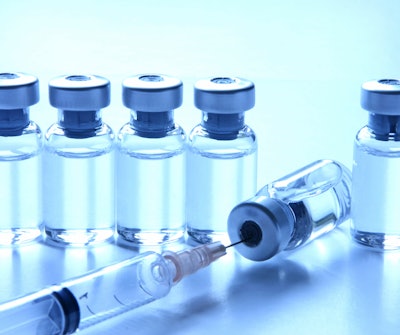
New study findings highlight the importance of controlling infectious bursal disease to optimize broiler respiratory vaccination programs.
Infectious bronchitis (IB) is a highly contagious upper respiratory disease in poultry. The disease often results in increased susceptibility to secondary infections, especially E. coli, leading to poor performance, elevated mortality and condemnations. Day of age spray vaccination is the “one shot on goal” strategy used to control IB in broilers so it is critical to get the most out of this strategy.
Infectious bursal disease (IBD) is a major cause of immune suppression in chickens caused by the infectious bursal disease virus (IBDV). Solid breeder programs prevent broiler infections in the first two weeks when immune suppression from IBD is greatest. However, many flocks are susceptible to IBD by three weeks of age when maternal antibodies have mostly waned.
The study’s primary objective was to determine if challenging three-week-old broilers with IBDV would negatively impact their active immune response to an infectious bronchitis challenge given four days later. A secondary goal was to see if IBD vaccination could help protect against any negative impacts of the three-week IBDV challenge on IB immunity.
The results revealed that broilers challenged with the AL2 strain of IBDV attained significantly less protection against the DMV/1639 strain of infectious bronchitis from their one day of age infectious bronchitis spray vaccination. However, when broilers were also vaccinated for IBD using a recombinant HVT-IBD, the IBD challenge did not diminish their acquired IB immunity.
“These results will serve to validate people who are already believers in the benefits of using recombinant or live IBD vaccines, while in others, it should serve notice that they may not always be getting the most out of their respiratory program—especially during the high challenge of winter,” explained Dr. Kalen Cookson, director of clinical research with Zoetis.
This research was initially presented at the 2024 International Poultry Science Forum (IPSF), part of the International Production & Processing Expo (IPPE) in Atlanta, Georgia.


















